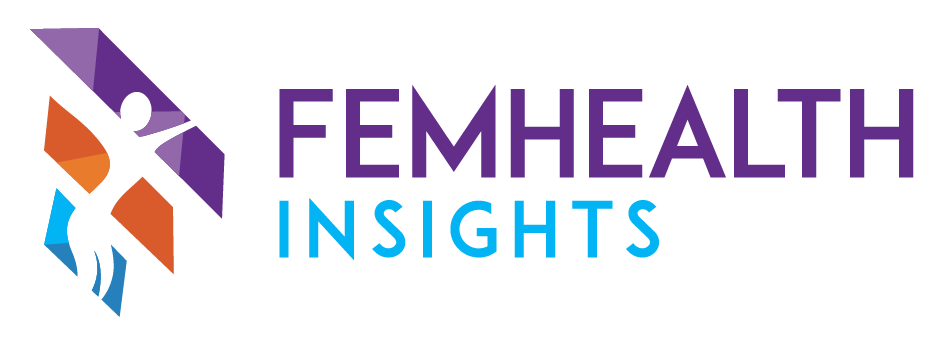Ozempic: A Double-Edged Sword for Women’s Health and Equity
Written by Ariella Tal, FemHealth Fellow, FemHealth Insights
What is Ozempic?
Ozempic, a brand name for semaglutide, is a prescription drug created by Novo Nordisk approved in 2017 by the FDA for managing type 2 diabetes due to its efficacy in controlling blood sugar levels. Although initially intended for diabetes management, studies revealed that users also experienced weight loss in addition to glucose management, but it is currently not approved as a weight loss drug. Doctors can prescribe Ozempic off-label for weight loss for people with a BMI higher than 30, or higher than 27 if they have other obesity-related co-morbidities. Many other similar drugs on the market lead to weight loss, including Wegovy, Mounjaro, Trulicity, and many more GLP-1-based medications.
How Does Ozempic Work?
Ozempic mimics GLP-1 (Glucagon-like peptide 1), a digestive hormone released in the gastrointestinal tract that signals fullness to the brain. GLP-1 plays various roles throughout the body, such as prompting the pancreas to release insulin and suppress glucagon to lower blood sugar levels. It also slows the movement of food from the stomach to the intestines, known as delayed gastric emptying, contributing further to the feeling of fullness.
What are the side effects?
The most common side effects of semaglutides are gastrointestinal symptoms, including nausea, diarrhea, vomiting, constipation, and abdominal pain. While serious side effects are less common, they can include pancreatitis, gastroparesis, and bowel obstructions.
Ozempic in Women: A Closer Look
Women are significantly more likely to use weight loss drugs like Ozempic. A study from Michigan Medicine showed that the percentage of young adult women using these drugs increased by 659% from 2020-2023, compared to a 481% increase among young adult men. Despite this, there are major information gaps regarding how these medications uniquely impact female patients. Many healthcare professionals have voiced concerns about the lack of data on these drugs’ effects during pregnancy. Although the drug is not recommended for pregnant women, given that approximately 45% of pregnancies in the U.S. are unplanned, there is a possibility of continued use of semaglutides during pregnancy.
Currently, a study on Wegovy, another semaglutide approved specifically for weight loss, is being conducted to determine its effects on those exposed during pregnancy. Still, results will not be available until after its completion in 2027. Animal studies suggest an increased risk of miscarriage and birth defects with semaglutide use, but no human studies have confirmed these findings. The legacy of the thalidomide tragedy, which resulted in babies being born with severe deformities due to the harmful effects of thalidomide taken during pregnancy, continues to impact modern medicine. This history has led to a significant reluctance among researchers to test medications on pregnant individuals. Numerous questions remain unanswered, including the impact of semaglutides on fertility, the rise of so-called “Ozempic babies,” and potential effects on easing vasomotor symptoms associated with menopause through resulting weight loss.
FemTech Solutions
Many women have experienced unexpected pregnancies while taking weight loss medications like Ozempic, leading to the term “Ozempic babies.” Although no research has confirmed the cause, some suspect weight loss from these medications can help restore ovulation and improve fertility. Currently, no studies have been published on the relationship between Ozempic and birth control. However, medical professionals have voiced concerns because Ozempic slows gastric emptying, potentially impacting the effectiveness of birth control pills if the hormones are not absorbed completely.
Luckily, many contraception options created by FemTech companies could serve as better alternatives to the pill and would not be impacted by slowed gastric emptying.
Evofem Biosciences created Phexxi, a hormone-free vaginal gel that prevents pregnancy
Natural Cycles developed an FDA-cleared fertility-tracking application that uses basal body temperature to predict ovulation and fertility
Medicines360, a nonprofit global women’s health pharmaceutical company, aims to make contraceptive options affordable worldwide and has developed two cost-effective intrauterine devices
Listen to our episode with Evofem Biosciences:
The Accessibility Challenge
With over one in eight people globally considered obese, weight loss drugs like Ozempic have the potential to profoundly impact billions of lives. Unfortunately, access to these drugs remains limited, due to costs and availability.
Medicaid, which provides health insurance to low-income populations in the U.S., does not cover weight loss drugs. Ozempic costs $968.52 per month before insurance, and Wegovy costs $1,349.02, making them unaffordable for many on Medicaid or without insurance coverage.
Prolonged drug shortages have also affected accessibility, with the demand for weight loss medications exceeding the supply. The FDA has listed several weight loss drugs, including Ozempic, Wegovy, and Mounjaro, on their drug shortages list. Pharmaceutical companies are increasing their production of these medications to meet the high demand, and new medications are currently in development.
Closing the Gap for Women’s Health
While Ozempic and similar drugs offer promising solutions for weight management, there remain significant gaps in understanding their impact on women's health, particularly during pregnancy. Additionally, the high cost and lack of insurance coverage present substantial barriers to equitable access. As the field continues to evolve, addressing these concerns will be crucial in ensuring that all individuals, regardless of economic status, can benefit from these advancements.
About the Author:
Ariella Tal is a FemHealth Fellow at FemHealth Insights, soon to pursue her Master of Public Health at UNC Chapel Hill. Passionate about advancing gender health equity, Ariella strives to develop innovative solutions across sectors to improve health outcomes. She aims to create a healthier, more equitable future for all.



